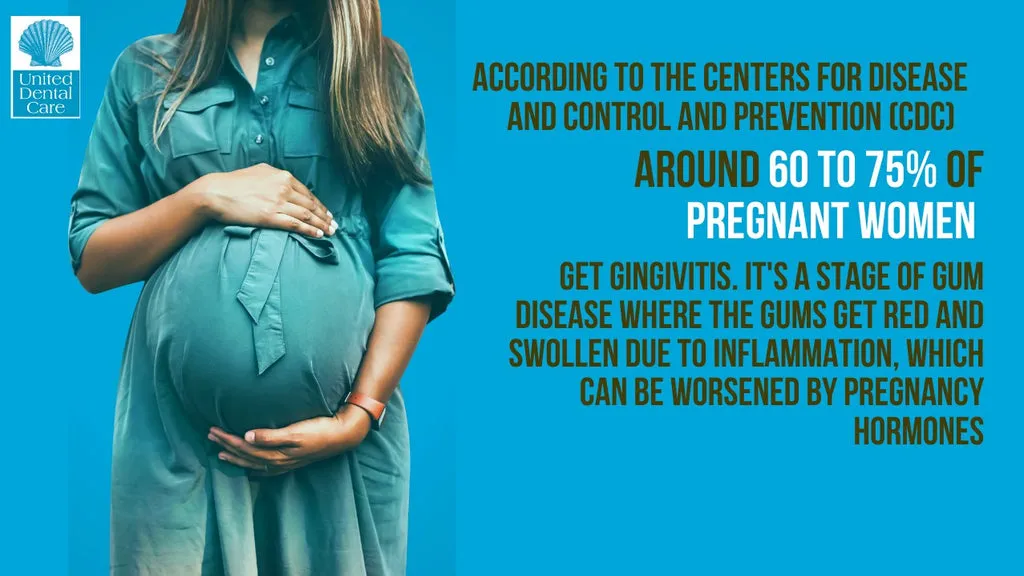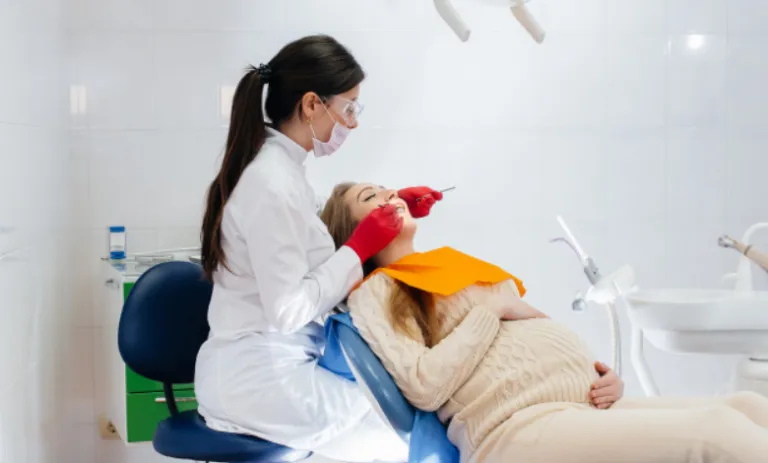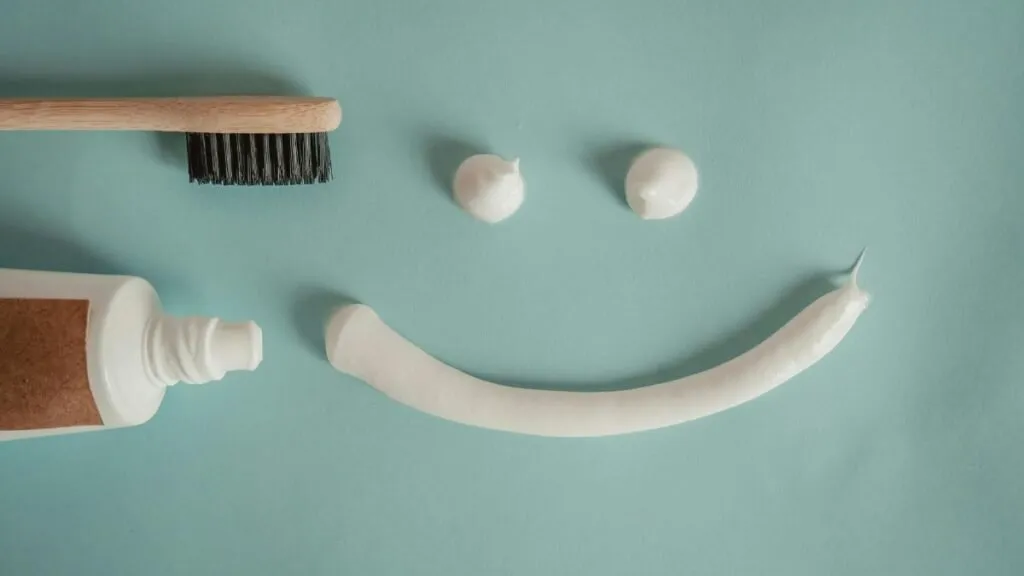Understanding Teeth Whitening and Pregnancy
Pregnancy brings about numerous changes in a woman’s body, and these changes can significantly impact oral health. Hormonal fluctuations during pregnancy often lead to increased blood flow to the gums, making them more sensitive and prone to inflammation, a condition known as pregnancy gingivitis. This sensitivity can make even routine dental procedures, including teeth whitening, a cause for concern. Additionally, many women experience morning sickness, which can expose teeth to stomach acid, increasing the risk of enamel erosion and tooth decay. Given these factors, it’s crucial for expectant mothers to carefully consider the safety and advisability of any dental treatments, including teeth whitening, ensuring they prioritize both their own health and the well-being of their developing baby. This guide provides crucial information, highlighting the safest options and practices recommended by the NHS and other leading dental health organizations.
The NHS Perspective on Teeth Whitening
The National Health Service (NHS) in the UK generally advises caution regarding cosmetic procedures, including teeth whitening, during pregnancy. While the NHS does not have a blanket ban on teeth whitening, it emphasizes the importance of informed decision-making and prioritizes treatments that are essential for maintaining oral health. The NHS’s primary focus is on the health of both the mother and the developing fetus. Consequently, non-essential procedures, like teeth whitening, may be deferred until after delivery. The NHS encourages pregnant women to discuss their dental care plans with their dentist, who can provide personalized advice based on their individual circumstances and medical history. They will assess the risks and benefits of any treatment, ensuring that the chosen course of action aligns with the safest practices for both mother and child.
What is Teeth Whitening

Teeth whitening is a cosmetic dental procedure designed to lighten the shade of your teeth, making them appear brighter and more aesthetically pleasing. This process typically involves the use of bleaching agents, most commonly hydrogen peroxide or carbamide peroxide, to remove stains and discoloration from the enamel. These agents work by breaking down the stain molecules, thereby reducing their concentration and improving the overall color of the teeth. There are various methods for teeth whitening, including professional treatments performed by a dentist and over-the-counter products available for home use. Professional treatments often involve higher concentrations of bleaching agents and can provide more dramatic results, while home treatments usually contain lower concentrations and require more time to achieve the desired effect. The suitability of a particular teeth whitening method depends on individual factors, such as the severity of the staining, the patient’s overall oral health, and their personal preferences.
Is Teeth Whitening Safe During Pregnancy
The safety of teeth whitening during pregnancy is a subject of ongoing debate and careful consideration. The primary concern revolves around the potential effects of the bleaching agents, specifically hydrogen peroxide and carbamide peroxide, on the developing fetus. While the exact extent of the risks remains unclear, there is a general consensus among dental professionals and health organizations, including the NHS, to exercise caution. Because limited research exists on the effects of these chemicals on pregnant women and their babies, the safest approach is often to avoid or postpone teeth whitening until after delivery. During pregnancy, the mother’s body undergoes significant hormonal changes, which can also affect the gums and teeth, making them more susceptible to sensitivity and inflammation. Therefore, any dental treatment, including teeth whitening, should be carefully evaluated, and the potential benefits should be weighed against the potential risks to ensure the health and safety of both the mother and the unborn child.
Potential Risks of Teeth Whitening During Pregnancy
Teeth whitening procedures, even when performed under normal circumstances, carry certain risks, and these risks may be amplified during pregnancy. The most significant concern is the potential for chemicals used in whitening products, like hydrogen peroxide, to be absorbed into the bloodstream. While the exact impact of these chemicals on a developing fetus is not fully understood, there’s a potential risk of adverse effects. Furthermore, the hormonal changes of pregnancy can make teeth and gums more sensitive, increasing the likelihood of side effects such as increased tooth sensitivity and gum irritation. The discomfort from such side effects could lead to complications or additional dental issues, thus impacting overall well-being. Considering these uncertainties and the potential for complications, dentists and health professionals typically recommend that pregnant women avoid teeth whitening. Instead, they encourage focusing on maintaining optimal oral hygiene through regular brushing, flossing, and professional dental check-ups to ensure both the mother’s and baby’s health.
Ingredients to Avoid in Teeth Whitening Products

When considering teeth whitening options during pregnancy, it’s crucial to carefully scrutinize the ingredients of the products. The primary concern is the concentration of bleaching agents, mainly hydrogen peroxide and carbamide peroxide. While these agents are generally considered safe for adults, the potential risks to a developing fetus are less clear, prompting caution. It’s advisable to steer clear of products with high concentrations of these chemicals. Beyond the bleaching agents, other ingredients may also pose risks. Some whitening products contain abrasive substances that can erode enamel, causing increased sensitivity, and potential complications. Always read product labels carefully, and consult with your dentist or a healthcare professional before using any teeth whitening product during pregnancy. This ensures you can make an informed decision, minimizing any potential harm to you and your baby. Look for products with lower concentrations of active ingredients or, ideally, opt for safer alternatives recommended by your dentist.
Safe Teeth Whitening Practices for Pregnant Women
While the safest approach to teeth whitening during pregnancy is often to postpone the procedure, if you are considering it, there are several steps you can take to minimize potential risks. Always consult with your dentist before undergoing any teeth whitening treatment. They can assess your oral health, discuss the risks and benefits specific to your situation, and recommend the safest options, if any. If teeth whitening is deemed necessary, opt for professional treatments performed by a dentist, as they can better control the process and use lower concentrations of bleaching agents. Choose products with lower concentrations of hydrogen peroxide or carbamide peroxide. Consider alternatives that are considered safer during pregnancy, such as professional cleaning, which can remove surface stains and improve tooth appearance without the use of harsh chemicals. Ensure that you follow your dentist’s instructions carefully and report any unusual symptoms or discomfort immediately. Prioritize consistent and thorough oral hygiene practices including brushing twice a day, flossing daily, and using a fluoride toothpaste, can help maintaining your oral health.
Consulting Your Dentist
The importance of consulting your dentist before undergoing any teeth whitening procedure during pregnancy cannot be overstated. Your dentist is the most qualified person to evaluate your oral health, assess your individual risks, and provide personalized advice. During your consultation, your dentist will examine your teeth and gums to identify any pre-existing conditions, such as cavities or gum disease, that could be exacerbated by teeth whitening. They will discuss your medical history, including your pregnancy status, and take into account any potential risks to both you and your baby. Your dentist can offer expert guidance on the most appropriate and safest course of action. They may recommend postponing the procedure until after delivery or suggest alternative methods that are safer during pregnancy. Furthermore, they can provide tailored instructions on how to maintain your oral health and minimize any risks associated with teeth whitening. Never underestimate the value of professional dental advice during this important time. Your dentist is your partner in ensuring a healthy pregnancy and a beautiful smile.
Alternative Teeth Whitening Methods

If you are looking to improve the appearance of your teeth during pregnancy but want to avoid or postpone teeth whitening procedures, several alternative options are available. One effective and safe method is professional teeth cleaning performed by your dentist or hygienist. This involves removing surface stains and plaque build-up, which can significantly improve the brightness of your teeth without using harsh chemicals. Another option is to improve your oral hygiene habits. Brushing your teeth twice a day with fluoride toothpaste and flossing daily can help remove stains and prevent further discoloration. Consider using a whitening toothpaste, which often contains mild abrasives to remove surface stains. Furthermore, you can modify your diet by reducing consumption of staining foods and drinks, such as coffee, tea, red wine, and berries. Drinking water after meals can also help rinse away food particles and prevent stains. These alternative methods can contribute to a brighter smile while prioritizing the health and safety of both you and your baby.
Maintaining Oral Hygiene During Pregnancy
Maintaining excellent oral hygiene during pregnancy is crucial, not just for a bright smile, but also for the overall health of both the mother and the developing baby. Hormonal changes during pregnancy can make gums more sensitive and prone to inflammation, leading to pregnancy gingivitis, which, if left untreated, can progress to more severe forms of gum disease. To maintain oral hygiene, brush your teeth at least twice a day with fluoride toothpaste, using a soft-bristled toothbrush to avoid irritating sensitive gums. Floss daily to remove food particles and plaque from between your teeth, where a toothbrush cannot reach. Consider using an antibacterial mouthwash as recommended by your dentist. Regular dental check-ups and professional cleanings are also essential. These not only help in maintaining healthy teeth and gums but also allow your dentist to identify and address any potential issues early on, ensuring they don’t develop into more serious conditions. Maintaining a healthy diet, low in sugary snacks and drinks, will further support oral health, contributing to a healthy pregnancy and a radiant smile.
Dietary Considerations for Healthy Teeth
The food you consume has a direct impact on the health and appearance of your teeth, especially during pregnancy. A balanced diet is crucial, not only for overall health but also for ensuring strong, healthy teeth. Focus on consuming foods rich in calcium and phosphorus, such as dairy products, leafy green vegetables, and fortified foods. These nutrients are essential for the development and maintenance of strong teeth. Limit your intake of sugary snacks and drinks, as they can promote tooth decay and increase the risk of cavities. If you experience morning sickness, rinse your mouth with water after vomiting to neutralize the acid and protect your enamel. Include foods that are high in fiber, such as fruits and vegetables, as they help to stimulate saliva production, which can naturally clean your teeth and protect against decay. Drink plenty of water throughout the day to stay hydrated and help rinse away food particles and bacteria. Consider eating crunchy foods like apples and carrots, which act as natural tooth cleaners, promoting oral hygiene.
The Importance of Regular Dental Checkups

Regular dental checkups during pregnancy are more important than ever. They are a proactive measure to ensure optimal oral health and to address any potential issues before they become severe. During a dental checkup, your dentist will thoroughly examine your teeth and gums, looking for signs of cavities, gum disease, and any other dental problems. They will perform a professional cleaning to remove plaque and tartar, which can help prevent gingivitis and other dental complications. Your dentist can also provide personalized advice on maintaining oral hygiene and recommend any necessary treatments or interventions. These checkups also serve as an opportunity to discuss any concerns or questions you may have about your dental health or any procedures you’re considering, such as teeth whitening. They will be able to provide informed advice, taking into account your individual circumstances and the health of your developing baby. Scheduling and attending these appointments will ensure you receive the best care and can maintain a healthy and beautiful smile throughout your pregnancy.
Conclusion
Teeth whitening during pregnancy requires careful consideration, particularly due to the potential risks involved. The NHS and most dental professionals advise caution, often recommending postponing cosmetic procedures like teeth whitening until after delivery. Prioritizing your oral health is essential, and maintaining good oral hygiene practices, regular dental checkups, and consulting your dentist for personalized advice are crucial steps. While teeth whitening may not be the safest option during pregnancy, alternative methods like professional cleaning, whitening toothpaste, and dietary modifications can significantly improve the appearance of your teeth. By following these guidelines, you can maintain a healthy, beautiful smile while ensuring the well-being of both you and your baby. Always consult with your dentist to make informed decisions and ensure your dental care aligns with the safest practices for a healthy pregnancy.
